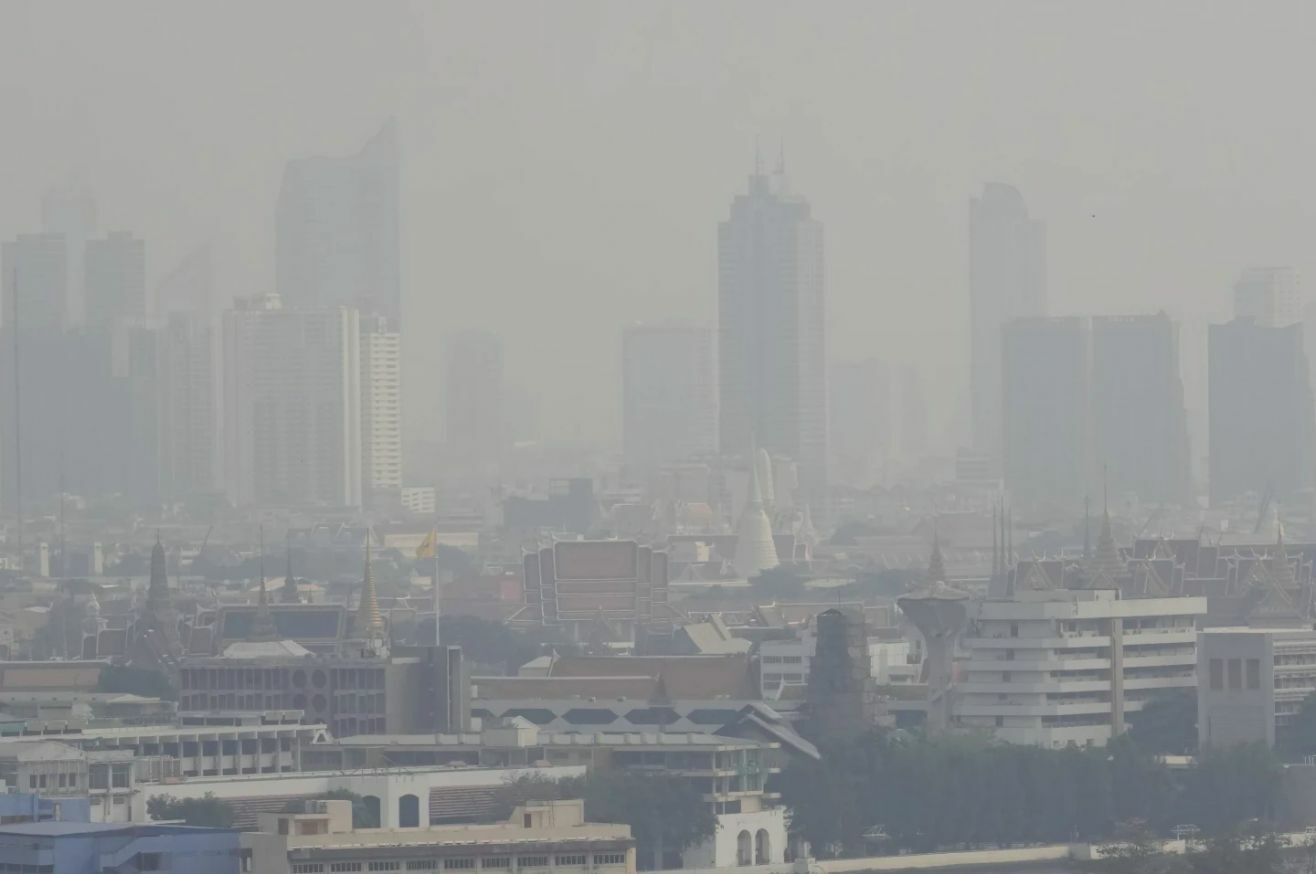Bangkok air pollution spikes as 35 areas exceed safe PM2.5 levels

Bangkok faced a spike in PM2.5 pollution levels, with 35 areas registering unhealthy air quality, prompting swift action from City Hall. The Bangkok Metropolitan Administration (BMA) issued warnings to help residents mitigate health impacts from the pollutants.
PM2.5, or ultra-fine dust particles, exceeded the safe threshold of 37.5 micrograms per cubic metre (µg/m³) in several areas, according to AirBKK, BMA’s air quality information centre. As of 7am yesterday, November 10, PM2.5 levels across the city ranged from 26.5 to 53.4 µg/m³.
Nong Khaem, Thon Buri, Klong Sam Wa, and Thawi Watthana recorded levels of 43.8 µg/m³ or higher, placing them among the city’s most polluted zones. Dusit slightly surpassed the safe limit with 37.6 µg/m³.
In these 35 zones, PM2.5 levels surpassed the safe threshold, earning them an orange status on the air quality monitoring system. Other parts of Bangkok maintained moderate air pollution quality.
The primary cause of the pollution was stagnant air, resulting from inadequate ventilation in the city. In response, the BMA’s Department of Environment urged relevant agencies to activate this season’s operational plan to reduce dust levels, reported Bangkok Post.
Residents, particularly those with underlying health conditions, were advised to wear facemasks outdoors, avoid strenuous outdoor activities, and monitor for symptoms like coughing, shortness of breath, and eye irritation. Medical advice is recommended if symptoms persist.
In related news, in a bid to blow away the blanket of smog smothering Southeast Asia, Thailand, Laos, and Myanmar joined forces with a sparkling new initiative: the Clear Sky Strategy 2024-2030.
The grand unveiling took place at Bangkok’s Ministry of Foreign Affairs yesterday, with VIPs Maris Sangiampongsa, Thailand’s top minister, and Chalermchai Sri-on, the Minister of Natural Resources and Environment, leading the charge.
In other news, The National Health Security Office (NHSO) has announced an investigation into clinics that fail to properly refer universal healthcare patients to hospitals, potentially resulting in legal action and penalties. This decision comes in response to complaints from healthcare subscribers in Bangkok, who have reported significant challenges in obtaining necessary referral documents for hospital treatment.
Latest Thailand News
Follow The Thaiger on Google News:


























